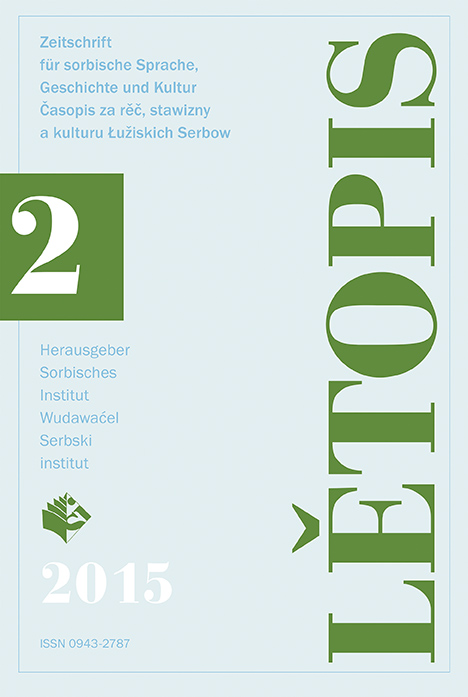Der Pietismus und die Sorben (Modernisierung durch Glauben)
Pietism and the Sorbs. (Modernisation through Belief)
Author(s): Lubina MahlingSubject(s): History
Published by: Domowina-Verlag GmbH / Ludowe nakładnistwo Domowina
Keywords: Pietismus; Glaube; Sorben; Kirche; zweisprachige Lausitz; Philipp Jacob Spener; Protestantismus; Henriette Catharina von Gersdorf; Nikol II. Von Gersdorf; Herrnhut; Nikolaus Ludwig von Zinzendorf; Brüdergemeine; Brüderkolonie Kleinwelka; Laienarbeit;
Summary/Abstract: Pietism in the 18th Century fundamentally changed Sorbian, Protestant society. The most decisive influence was the pietism of Herrnhut, which was characterised by the heavy involvement of the laity. Extensive educational processes were instituted under its influence; the written word gained ground in Sorbian society, which up until then had been based to a large extent on oral traditions. The increasing use of the written word enabled and accelerated pluralisation and social differentiation amongst the Protestant Sorbs. Competing groups emerged within the Protestant community, which had an invigorating effect on the Sorbian book market. The Upper Lusatian aristocracy played a large part in these modernisation processes, led by the chief administrative official, Holy Roman Imperial Count Friedrich Caspar von Gersdorf, a distant cousin of Nikolaus Ludwig of Zinzendorf. Gersdorf supported the religious lay movement, encouraged the printing of numerous religious books and founded a number of schools. The Klix seminary and the Uhyst institutes, two institutions, which were founded particularly with Sorbian students in mind, offering an indepth academic and vocational education, are particularly important from a cultural and historical point of view.
- Issue Year: 2015
- Issue No: 2
- Page Range: 15-33
- Page Count: 19
- Content File-PDF

